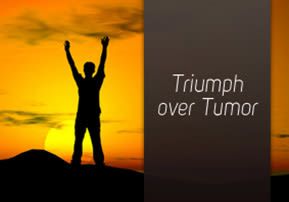
Triumph over Tumor
The tumor was crushing all the nerves between her head and spine, threatening her ability to see, move, hear, speak, taste and smell…would she wake up the next morning?

Full of wonder, I keep, asking myself “I really went through all that?” Chills go all over my spine, arms and sense of awareness. Tears fall and I hurry to wipe them out of the way as I write this story.
Hodu l‘HaShem I’ve recovered in astonishing ways from an initial crisis that could have killed me within a year or so. In 2005 an emergency room doctor had to tell me why I’d been suffering increasing weakness, failing sight and difficulty at preventing food and drink from spilling out of my closed lips: You’re dying. You have a benign brain tumor that’s crushing all your nerves. We need to find the right doctor who can help you. Not many can.
The search was on, red lights flashing, for some surgeon in the wider world who could remove a large, benign shmenign brain tumor at the base of my skull. It was crushing all the nerves between my head and spine. That Petroclival Tentorial Meningioma threatened my  ability to see, move, hear, speak, taste and smell.
ability to see, move, hear, speak, taste and smell.
I was sent home from the hospital as there was nothing for me to do until that surgeon would be found. Each time I took a nap, I wondered if I would wake up from it, or if I’d want to. Friends and doctors were searching out the medical world, looking for someone who could remove my tumor without killing me in the process. We found those steady hands in the USA and Israel. Both medical professionals were tops in their field. Some of their colleagues had been afraid to even open me up. The surgery I needed could not go the least bit wrong or I’d lose my life, if not the quality of that life, on the operating table.
Friends offered to pay my airfare to America to let an NIH expert do the operation. I declined to leave the Holy Land, and chose to let candidate #2, a local neurosurgeon, save my life. I adamantly told my skeptical loved ones, “I made aliya. My mazal is here, not elsewhere.” I begged HaShem to save me, and to put good responses in my mouth. I was functioning on a level I struggle to describe. I had one chance to stay alive and I chose to behave as if it would work. I should have earned as Oscar for putting up that brave front.
I used to supervise medical records in the USA, speak medicalese and know far more about disease processes than the average person. My neurosurgeon and I met to map out my survival plan. I trembled as he described the situation. Further tumor growth would threaten to end my heartbeats. I almost screamed as I realized “It will press the medulla oblongata portion of my lower brain stem. It controls heartbeat. OH MY GOD!”
My small paperback sefer tehilim bent and crushed in my writhing, wringing hands. I recovered my composure, somehow. We mapped out his course together as we looked at my MRIs: I would be face-down as he teased out the now very large tumor that he hoped would fall into his hands. That method would minimize the need to move away nerves nestling it deep inside a web of sensitive tangles controlling all my body functions. The surgeon assembled his team over a period of weeks while I prayed for rescue and refua shlaima 24/7. I entered the hospital for the operation months after the terrifying diagnosis. In the interval since the emergency room encounter, I battled intermittent blindness. The tumor moved in my head, crushing optic nerves or relieving pressure on them so I could see at times.
I was about to swallow the drugs to make me sleep for August 2005 surgery when my surgeon came to my bedside. “Come to my hospital office – I just thought of a better approach for saving you. I need you to agree to the procedure.” I sucked in my pride as a modest lady and scurried to his clinic in my bathrobe and PJs monogrammed with the hospital logo. I needed to learn about Plan B. My doctor demonstrated on the MRIs that he could make a fronto-orbital entry and pull the tumor out through a “space” in my brain called a “sinus.” Such a procedure would minimize the need to touch the web of nerves trapping the tumor within them far better than Plan A. It would leave me with a slightly deformed face that “would heal over time,” and “most likely cocked eyes with permanent double vision.” I considered the options aloud. “I can learn to adjust to double vision and looks aren’t everything.” In my heart I decided to wear sunglasses for the rest of my life. I needed some form of life-saving surgery. The only other option was slow death in painful agony. I signed for Plan B and off we went. Sort of.
My friends Jesica Myers and Etti Shay had called me before the doctor rushed to my room with “Plan”-changing news. They had asked what they could bring to ease my post-op discomfort. “My orthopedic pillow. It’s so comfy,” I’d said.
As the medical team placed my gurney outside the operating room for last-minute checks of my internal health, the women arrived with my pillow. They admired the aqua-blue magic marker lines across my forehead and face, indicating where to cut open my skull. “You look like an Amazon Warrior,” Jesica remarked. “Me brave. Going to survive to laugh about this,” I intoned in fake pidgin English. I looked at Etti, grasping my hands with hers. Suddenly, the technicians came to roll me through the doors and a tug-o-war ensued. My friends had a hard time letting go of the bed rails. Tears fell like IV fluid, sustaining my hopes with the love of friends. I asked them to let go and to let the surgeons save my life.
I awoke about 18 hours later, listening to men speaking Argentinean Spanish and wondering which brave lady they were discussing over my bed. Then it dawned on me. My brain was flooding with the sound of a language I hadn’t spoken in decades. “Yo soy la senora. Milagro maravilloso. I’m alive!” I thought to myself. I squeaked to the doctors to let them know I was awake. I felt indescribable pain and fell asleep again. Drugs can be so helpful at times.
Physical therapy helped me to recover my strength once I left the hospital. Over the next six years, I astonished the medical world several times over with HaShem’s help. My kaleidoscopic double vision with ever-moving holograms caused me to miss many stairs, curbs and steps. I broke so many bones I’ve lost count of the hours spent in rehab and the names of all the therapists involved. I became an organic food vegetarian under the guidance of a dati private doctor and a naturopath he recommended to me. The result of that was sight that improved over time. The prescription for my eyewear fell 15 times in less than five years. I was losing the severity of pages worth of documented vision complications. My level of disability was lowered 5% (we were starting from such a severe setback. The 2006 hospital optician who peered through a machine recreating how I see became so nauseated he had to step out of the exam room to relieve his stomach).
I often wonder how Rabbi Brody can recommend merely an hour a day of hitbodedut. I’ve talked to HaShem nonstop when I’m cooking, cleaning house, walking on errands or relaxing, almost all my life. Baruch Hashem I must have chatted HaShem’s ears off until He needed relief, so to speak. In 2010 my private care eye doctor learned, from the Nora organization (http://www.nora.cc/), of a novel way to end my lingering double vision. She globbed clear nail polish on one lens of my distance glasses, and attached textured clear tape to my reading glasses. I lost my 24/7 nausea, double vision and broken bones curse the moment I donned the eyewear.
We agreed that my glasses would hold these odd-looking prisms until I reached old age. But we were in for a shock. Less than nine months later, I called my eye-care professional, telling her that “I’m dizzy, nauseated and unsteady on my feet.” She immediately examined me. I broke into tears that lasted almost a week after she announced the news. My optic nerves had learned to work together. My eyes now moved in coordinated fashion for the first time since the tumor had crushed the optic nerves years ago. HaShem was healing the nerves that none of my doctors had believed could recover. I no longer needed the prisms. My eyeglasses could look like everybody else’s. Those crushed optic nerves, let alone my brain, were healing in a way my neurosurgeon calls “Amazing.”
My double vision was ending over time. “Miracle” hardly describes the term I want to invent to describe the phenomenon. The professionals who’d taught my eye doctor this nail polish and tape technique (among others) had never heard of anyone graduating that form of vision therapy. I devoted some of my energies to alerting the wider world to the possibilities of how to help people with severe brain injuries to see better again.
My precious friends, most not mentioned in this essay, kept me going when I could not fend for myself. They did my laundry, prepared meals, cleaned my home and blew shofar in my salon when I could hardly stand up straight or see more than a glimmer. I made a seudat hoda’ah on the one-year anniversary of that life-saving surgery. I told friends at the party that I’d seen HaShem in their gestures and labors of love.
I resolved to be better, not bitter, from the experience. The Ribnitzer Rebbetzin warms my heart again and again with her take on why HaShem chose me for the overall experience. The past few years have been a spiritual challenge that prompted me to reach for insights I needed.
A professional feature story writer whose byline has appeared worldwide since 1992, I’ve written a book to help ill people worldwide. It’s called “It’s MY Crisis! And I’ll Cry If I Need To: EMPOWER Yourself to Cope with a Medical Challenge” and it has received acclaim from clergy of different faiths, medical and mental health professionals. None of the above could have happened if Av Harachamim had not willed it to happen. I kept the door open to let HaShem help me. When you read the book, you can, too. Talmud Bava Metzia 59a teaches us that the gates of prayer are closed, but the gates of tears remain open. Crying is a form of communication. You have a license to cry to Av HaRachamim, G’D of compassion.
Yocheved Golani






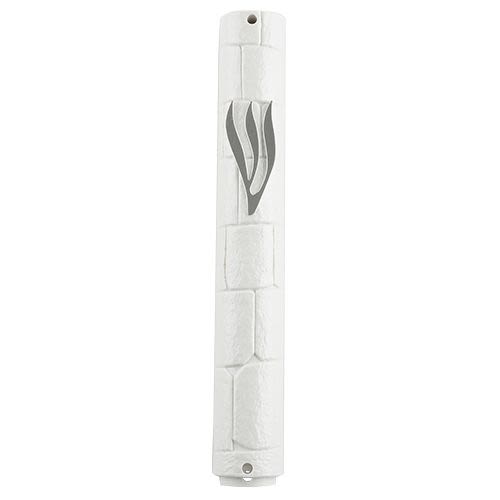
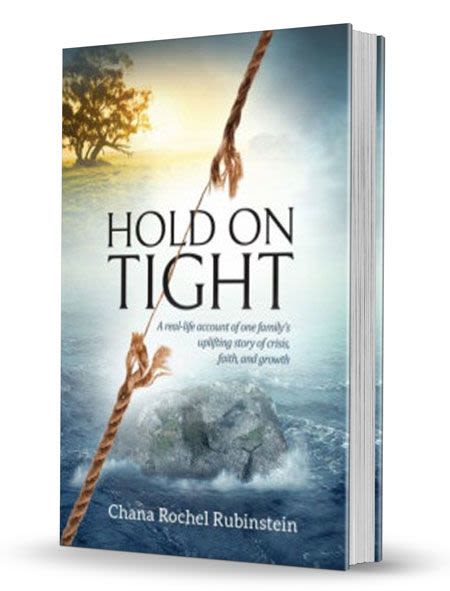
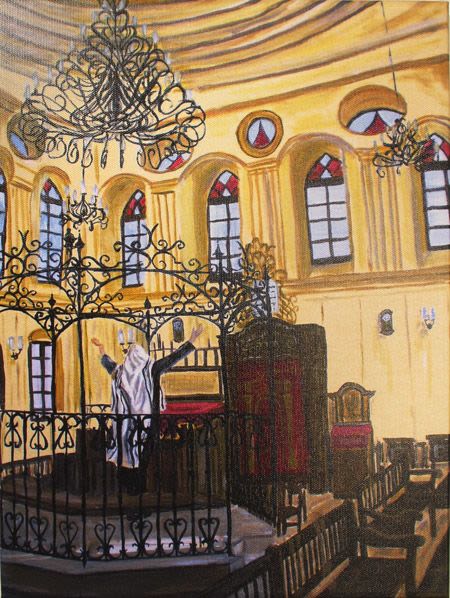
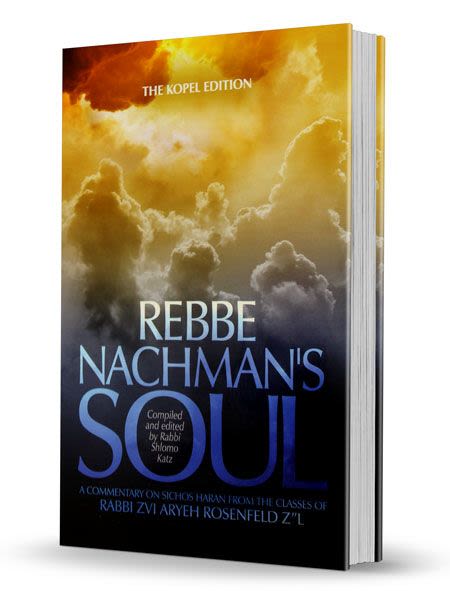
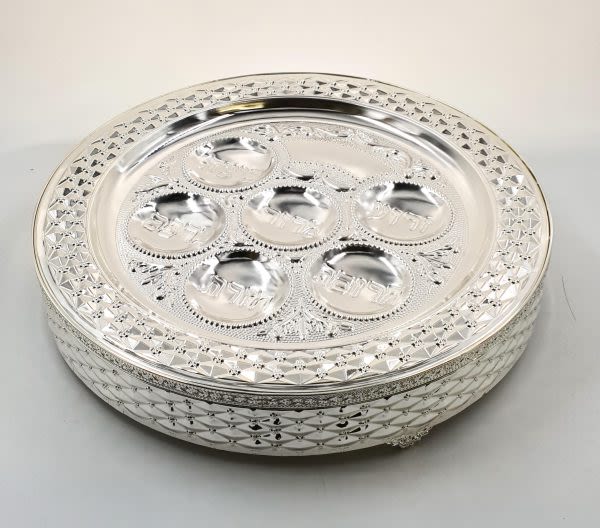
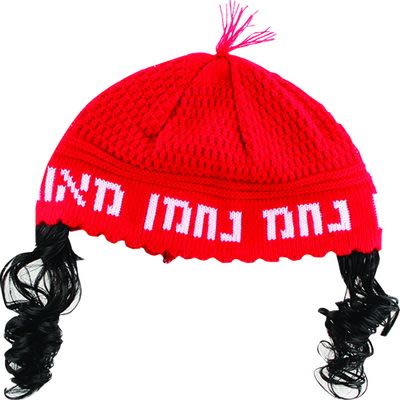
Tell us what you think!
Thank you for your comment!
It will be published after approval by the Editor.